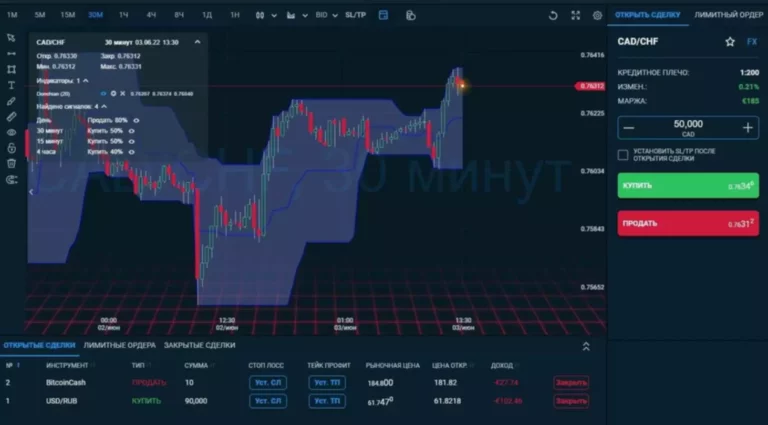They symbolize the ideal inventory market as a outcome of they are really transparent. When retail investors buy and promote stocks and other securities, they usually go through a brokerage agency or their most well-liked online buying and selling platform. The rule would require brokerages to send shopper trades to exchanges quite than darkish pools until they can execute the trades at a meaningfully better worth than that obtainable within the public market. If implemented, this rule may current a critical problem to the long-term viability of darkish pools. The current HFT controversy has drawn vital regulatory consideration to dark pools. Regulators have generally considered dark swimming pools with suspicion due to their lack of transparency.

The similar threat exists when shopping for massive blocks of a given safety on a public market, as the acquisition itself can entice consideration and drive up the value. Working with an adviser could include potential downsides such as fee of charges (which will reduce returns). There are no guarantees that working with an adviser will yield optimistic returns. The existence of a fiduciary responsibility does not stop the rise of potential conflicts of interest. Let’s assume a mutual fund wants to sell 1.5 million shares of a company. Instead it will have to sell in parcels, discovering a purchaser for 10,000 shares, then 1,500 shares, and so on and so forth.
Criticisms Of Darkish Pools
In April 2019, the share of U.S. inventory trades executed on dark swimming pools and different off-market automobiles was virtually 39%, in accordance with a Wall Street Journal report. As of the end of December 2022, there were more than 60 dark pools registered with the Securities and Exchange Commission (SEC). There are three sorts, together with broker-dealer-owned darkish swimming pools, company broker or exchange-owned dark pools, and electronic crypto dark pool market markers dark pools. Dark pools started after the Securities and Exchange Commission (SEC) made a regulatory change in 1979. Traders wished decrease execution costs and did not want rivals to know what, when, the value, and quantity of instruments they have been trading. As a result, dark swimming pools had been created in order that prices were not publicly displayed.
SoFi doesn’t charge commissions, but other fees apply (full charge disclosure here). There are many darkish swimming pools on the market, and they can be operated by unbiased corporations, brokers or dealer groups, or stock exchanges themselves. The privacy of dark pool stock trading may be useful in maintaining particulars of huge trades away from information media coverage. On the basic public market, these varieties of trades would probably “trigger value overreaction or underreaction,” according to Corporate Finance Institute. As a retail investor not only will you’ve comparatively little use for the anonymity that a dark pool trade offers, you might also expose yourself to a number of dangers not current on a public trade.

Dark swimming pools had been initially mostly used by institutional buyers for block trades involving numerous securities. A 2013 report by Celent found that on account of block orders moving to dark pools, the typical order measurement dropped about 50%, from 430 shares in 2009 to roughly 200 shares in 4 years. A darkish pool is a private trading system or change used to commerce securities anonymously, where the details of the trades aren’t revealed publicly till after the trade is executed. Dark swimming pools stand in distinction to traditional “lit” swimming pools, in which provides to purchase or promote securities are made publicly and transparently. Dark Pools work by matching patrons and sellers anonymously and executing trades exterior of public exchanges.
Do You Already Work With A Financial Advisor?
This could shortly cause the price to drop before the transaction finalizes, as others may see that somebody is trying to eliminate a lot of stock. The dark pool gets its name as a result of particulars of those trades are hid from the general public till after they’re executed; these transactions are obscure like darkish, murky water. A darkish pool is a private exchange where buyers and sellers can trade securities, often shares or bonds, anonymously, without disclosing their identity or the main points of the transactions. Dark pool investing can save institutional buyers money since they aren’t managed by a large public exchange and subsequently keep away from exchange charges. Also, the intentions of their trades aren’t public until after the trades are executed, which may also supply a price profit for an institutional investor. If you haven’t heard of dark pool stocks, there’s an excellent cause for that.
While the darkish pool market has expanded, it is nonetheless not clear the way it impacts public inventory exchanges where most particular person and retail trades are carried out. While dark pools are legal, they have come under regulatory scrutiny because of their lack of transparency. Sometimes ATS/dark pool operators have engaged in dishonest behavior—like front-running orders (tipping off other merchants a few dark-pool trade)—that’s led to enforcement from the us For one, critics point out that that the dearth of transparency in darkish swimming pools can disguise conflicts of curiosity. The SEC has also stepped up its scrutiny of darkish pools as a end result of complaints of illegal front-running. Front-running occurs when an institutional dealer enters right into a trade in entrance of a customer’s order because the change within the worth of the asset will probably result in a monetary gain for the broker.
Small variations in pricing for each buying and selling securities can add up, especially when trading happens incessantly. With the appearance of high-speed laptop packages able to executing algorithmic-based packages in a matter of milliseconds, high-frequency buying and selling (HFT) has come to dominate the day by day trading quantity of the market. Dark Pools provide advantages corresponding to improved execution quality, lowered market influence prices, and enhanced privacy and decreased data leakage. The Financial Industry Regulatory Authority (FINRA) additionally regulates dark pools in the United States. FINRA is answerable for monitoring darkish pool activity and making certain compliance with securities legal guidelines and regulations.

Dark pools provide institutional buyers a range of advantages, together with lowered market impression, elevated anonymity, entry to liquidity, and decrease transaction costs. By matching patrons and sellers privately and executing the trade exterior the general public market, darkish swimming pools forestall other market individuals from reacting to the trade and driving up or down the worth. A lit dark pool is a private change where buyers and sellers can trade securities anonymously, but the particulars of the transactions are made obtainable to the basic public.
By definition, dark swimming pools are secret, so that excludes details about inventory buying and selling. The “flash crash” of 2010—an occasion that lasted about 36 minutes and worn out nearly $1 trillion in market value—showed that extra regulation was needed to regulate high-frequency trading. Within these private platforms, suppose a trader desires to buy a stock at $100 per share for its shopper, but the lowest publicly posted bid value on the NYSE is a couple of cents higher per share. Instead of getting to purchase the shares for $100.05, for instance, the dealer might submit the order by way of a dark pool, hoping the non-public system has a match with another celebration willing to promote at that $100 price.
Darkish Swimming Pools Pros And Cons
A “dark pool” is a non-public trade used for buying and selling securities in a non-public method. All over-the-counter trades involve a sure quantity of danger that you’ll pay too much or too little. Although, within the case of darkish pool buying and selling, you can mitigate that by aligning your trades with the publicly available data. However, traders on a dark pool are typically appearing prematurely of the market. The stocks that you buy or sell at present may swing wildly in value fairly soon. For example, Bloomberg LP owns the darkish pool Bloomberg Tradebook, which is registered with the SEC.
One measure that may help exchanges reclaim market share from dark pools and other off-exchange venues could presumably be a pilot proposal from the Securities and Exchange Commission (SEC) to introduce a trade-at rule. The common trade size in dark https://www.xcritical.com/ pools has declined to lower than one hundred fifty shares. While dark pools are legal and controlled by the SEC, they have been subject to criticism due to their opaque nature.
Regulation Of Dark Pools
The history of darkish pools in the trading world begins in the Nineteen Eighties, following adjustments at the Securities and Exchange Commission (SEC) which effectively allowed brokers to make trades in giant share blocks. Later, in the mid-2000s, further SEC modifications that were meant to chop trading prices and enhance market competitors led to a rise in dark pool buying and selling. They might also be referred to as various buying and selling techniques (ATS) or non-public trading networks. As of February 2020, over 50 darkish swimming pools were registered with the SEC, falling into three totally different categories. Dark swimming pools, otherwise known as Alternative Trading Systems (ATS), are legal non-public securities marketplaces. In a darkish pool trading system, traders place buy and sell orders with out disclosing both the worth of their commerce or the variety of shares.

The first dark pool was created in 1986, with the launch of Instinet’s buying and selling platform known as After Hours Cross. It allowed buyers to put nameless orders that were matched after the markets closed. Just one 12 months later, in 1987, a second platform emerged within the form of ITG’s POSIT. Ironically, dark pools have been initially presented as a method to keep away from front-running. This course of occurs when a market participant, perhaps a high-frequency trader, takes the data of an existing order that can move the market and then makes the identical transaction first to obtain better pricing. On the other hand, advocates of darkish swimming pools insist they supply essential liquidity, and thereby permit the markets to function more effectively.
Investment banks sometimes run dark pools, however some other establishments run them as nicely, including massive broker-dealers, company brokers, and even some public exchanges. Some buying and selling platforms, the place particular person investors buy and sell stocks, also use dark swimming pools to execute trades using a cost for order move. Dark swimming pools present pricing and cost benefits to buy-side institutions corresponding to mutual funds and pension funds, which maintain that these benefits finally accrue to the retail traders who personal these funds.
Dark pools work by having broker-dealers or different events, corresponding to stock exchanges, set up private electronic venues to conduct trades. Within a dark pool, nevertheless, the pension fund could try to sell all of the shares they wish to eliminate suddenly (before the price can move in opposition to them). The fund may do this by matching with a buyer who agrees to the transaction price forward of execution.
However, darkish pools’ lack of transparency makes them prone to conflicts of interest by their house owners and predatory buying and selling practices by HFT companies. HFT controversy has drawn increasing regulatory attention to dark pools, and implementation of the proposed “trade-at” rule might pose a risk to their long-term viability. If the amount of buying and selling in darkish pools owned by broker-dealers and digital market makers continues to develop, stock prices on exchanges could not reflect the precise market. For instance, if a well-regarded mutual fund owns 20% of Company RST’s inventory and sells it off in a dark pool, the sale of the stake may fetch the fund a good price.
